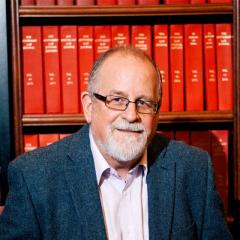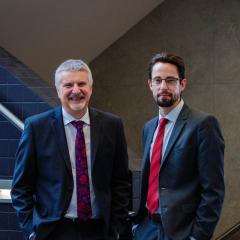Alcohol and other drug use are the leading cause of disability and death in young people.
Unfortunately, very few young people with alcohol and drug problems seek help, with an average 18-year gap between problem identification and receiving treatment.
Increasing knowledge about what treatments are most effective for addiction and mental health is the focus of an appointment made by The University of Queensland and collaborators Lives Lived Well.
Professor Leanne Hides joined the Faculty of Health and Behavioural Sciences in January 2017 as Professor of Alcohol, Drugs and Mental Health
A leading researcher in the field, Professor Hides holds an NHMRC Senior Research Fellowship and has over 17 years of clinical and research experience in the mental health and substance use sectors.
Her main areas of research interest include the efficacy of early interventions for primary and comorbid substance misuse, including the creation of web- and mobile phonebased interventions.
Developing and testing innovative treatments is a key aim of Professor Hides and the clinical staff she works alongside.
“Lives Lived Well, a not-for-profit organisation providing addiction prevention and treatment services across Queensland, is our ideal clinical and research partner,” Professor Hides said.
“Together we are able to build the evidence base for models of service delivery and treatments of substance use and mental health issues.
“We will also be able to translate our research into clinical practice to help bridge the cavern between what we know works and what gets used in clinical practice.
“This will ensure young alcohol and other drug users have access to timely and effective treatment.”
Prior to joining UQ’s School of Psychology, Professor Hides was Deputy Director of the Centre for Youth Substance Abuse Research (CYSAR), based at the Queensland University of Technology’s Institute of Health and Biomedical Innovation.
CYSAR is the only youth-focused substance use research centre in Australia. Established with philanthropic funding, this UQ and QUT partnership seeks to understand, prevent and enhance evidence based strategies, programs and policies for youth substance use.
During her tenure as Deputy Director of CYSAR, Professor Hides’ team developed a mobile app – ‘Ray’s Night Out’ – to assist teenagers in learning safe drinking behaviours in a fun and interactive way.
‘Ray’s Night Out’ was part of the eTools for Wellbeing project delivered through the Young and Well Cooperative Research Centre. The six eTools included mobile apps and websites that were distributed freely online. Two of the apps were listed in Buzzfeed’s 2015 top 11 mental health apps, and in 2016 the eTools for Wellbeing project was awarded the Best Promotion or Prevention Project at the Mental Health Services Conference of Australia and New Zealand. The award recognised the work by Professor Hides and her team in engaging with young people to design effective and useful tools to prevent harms associated with alcohol and other drug use.
This included the ‘Keep It Real’ web-based program targeting psychotic experiences in cannabis users.
“There is strong evidence linking cannabis use with the risk of psychosis, and with ‘Keep It Real’ we’re trying to help young cannabis users identify if they’re at risk,” Professor Hides said.
“The program provides cannabis users with age and gender specific feedback on how many other young people experienced psychotic experiences after ingesting cannabis, to help them figure out if their experiences are consistent with others.
“The program helps normalise these reactions, provides strategies for reducing both cannabis use and psychotic experiences, and facilitates professional help seeking when necessary.”
Since starting in the Lives Lived Well Chair, Professor Hides has continued to translate research into effective strategies. Her team has delivered brief interventions to 400 young people with alcohol-related injuries and illnesses accessing hospital emergency departments and crisis support services in the Brisbane Safe Night Out Precinct.
A recent $2.31 million Alcohol and Other Drug Research grant from the Federal Government will support the continuation of this work.
“We now aim to identify atrisk young people in South East Queensland’s Safe Night Out Precincts and provide them with an effective early intervention to reduce their risk of future alcohol-related harm,” Professor Hides said.
Words: Dani Nash
Photos: Anjanette Webb



